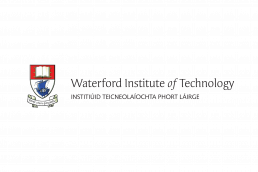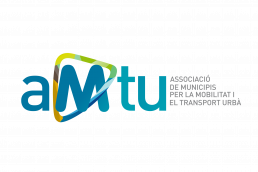
Partner: AMTU, Associació de Municipis per la Mobilitat i el Transport Urbà
Country: Spain
WP NO: WP3, WP1 and WP9
Partner Information:
AMTU is an association of Catalan national municipalities, which works to improve mobility and public transport infrastructures throughout Catalonia.
The Association of Municipalities for Mobility and Urban Transport (AMTU) provides technical, legal and administrative support to its partners in the field of mobility, infrastructure and public transport. In addition, AMTU wants to represent the joint voice of all Catalan municipalities and, therefore, is open to all municipalities and municipal entities that voluntarily decide to be part of the association.
AMTU has 113 associated entities, with a represented population of 2 million inhabitants and a volume of urban travelers transported of about 44 million each year.
The goals of AMTU are diverse. Achieve stable funding for partner municipalities, so that they can cope with the maintenance and improvement of their public transport. The endowment of more and better infrastructures, and the mutual help, formation, information and coordination between his partners, so that the public transport and the sustainable mobility gain prominence, users and social prestige.
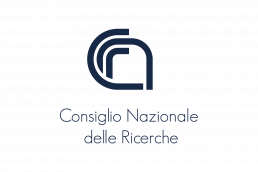
Partner: CNR – Consiglio Nazionale delle Ricerche
Country: Italy
WP NO: Leader of WP10(Management), WP1 (Ethics) Project coordination & WP6, participant in WP4, WP5, WP7, WP8, WP9.
Partner Information:
The Italian National Research Council (CNR) is the main public research organization of Italy. The CNR consists of about 100 different research institutes that span from human sciences to engineering sciences. The security group of the Institute of Telematics and Informatics Institute (IIT-CNR) in Pisa runs research and development activities in cyber-security. The group consists of about 20 persons, ranging from researchers to Ph.D. students and software engineers.
The security group has a significant expertise on formal models for security and trust, secure software engineering, data sharing agreements, language-based security, usage control monitoring and enforcement, and study of security metrics and risk. They are currently leading the FP7 funded Network of Excellence of Engineering Secure Software and Systems (NESSoS). Moreover, they coordinate the CNR Interdepartmental Security Project, for the prevention of any action that may be harmful to society, humans, and organizations in Italy, with special emphasis to cyber security and critical infrastructure protection.
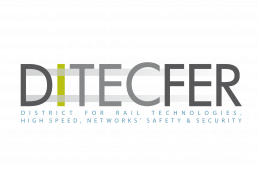
Partner: DITECFER – District for Rail Technologies, High Speed, Networks’ Safety & Security Consortium
Country: Italy
WP NO: WP4, WP5, and WP9
Partner Information:
DITECFER is the leading cluster for rail technologies in Italy and one of the most active at European level also in the field of EU projects. Founded as a no profit limited liability company with consortium purposes in 2014 as spin-off of the Railway Technology District – established by law by the Tuscany Region in 2011 -, today DITECFER has 50 shareholders among the most dynamic and collaborative companies of the rail supply industry and research organizations specialised in railway-related technologies.
DITECFER mission is to develop strategic know-how and to promote collaboration, innovation, research and development among own members to make them more competitive, as well as to support their internationalization on new foreign markets as integrated value chain.
As an innovation cluster, DITECFER is – among other – the coordinator of the European Strategic Cluster Partnership for Excellence (ESCP-4x) “EXXTRA”, whose mission is to leverage clusters managerial skills and support services for members towards “world-class” level.
DITECFER is also Member of the European Commission Expert Group on the Competitiveness of the Rail Supply Industry, dealing with all policy issues impacting on European competitiveness, with high attention towards research, innovation, standardisation and market access.
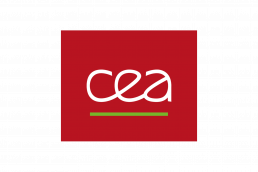
Partner: CEA – Commissariat à l’énergie atomique et aux énergies alternatives
Country: France
WP NO: Leader WP8, contributor in WP7, WP2, 3, 4, 5, 6, 9
Partner Information:
The CEA is the French Alternative Energies and Atomic Energy Commission (Commissariat à l’énergie atomique et aux énergies alternatives), the French DoE. It is a public body established in October 1945 by General de Gaulle. A leader in research, development and innovation, the CEA mission statement has two main objectives: to become a leading technological research organization in Europe and to ensure that the nuclear deterrent remains effective in the future.
Located at the heart of Saclay area (Paris region), the CEA LIST Institute focuses its research activities on developing innovative technologies for smart and complex systems. Its R&D programmes, with potentially major economic and social implications, centre on interactive systems (ambient intelligence), embedded systems (architecture, software and systems engineering), sensors and signal processing (industrial control systems, health, security and metrology).
Dedicated to technological research, CEA LIST’s more than 700 researchers and technicians strive to encourage innovation and technology transfer through long-term industrial partnerships. The dynamism of the Institute’s teams, their project-based culture and their consistently high standard of scientific excellence underpin this objective.
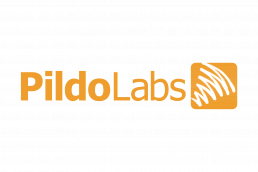
Partner: Pildo Labs
Country: Spain
WP NO: Contributing to WP3, WP5, WP8 and WP9
Partner Information:
Founded in 2001, PILDO Labs is an engineering company specialized in delivering top of the edge technology within the aeronautics and space sectors. Our team is multicultural, young, creative, energetic, interdisciplinary and with a solid background in technology.
The operation of PILDO is structured in three main areas: navigation services, in charge of delivering GNSS services to aeronautical sector; software services, in charge of providing software development support to the other areas of the company and also directly to clients that need critical software such as Space sector and Finance clients; and R&D services, responsible for developing new services and products that provide the company with a strategic position.
Our main activity is focused within the Aeronautical sector, in which we are recognized as experts in GNSS applied to air navigation within the EU market thanks to our leadership since the very beginning in the most strategic projects for the main European bodies in this field.
Additionally, Pildo Labs has developed a system called Nemi (nemi.mobi), which enables the operation of demand-responsive public transport services. Nemi is currently allowing the operation of 10 flexible bus services, mostly in Catalonia, connecting areas with lower demand for mobility.

Partner: FACTUAL Consulting
Country: Spain
WP NO: WP3, WP4, WP8, WP9
Partner Information:
Based in Barcelona but with a genuine glocal mindset, FACTUAL is a foresight boutique innovation consultancy specialized in all things mobility. We liaise with stakeholders at local level, public and private, and support them in understanding and effectively adapting to a complex, interconnected, dynamic mobility ecosystem.
At the same time, we work for global customers and enjoy boosting innovation by contributing our expertise and commitment to international, cross-industry consortia pursuing research and innovation under public-funded projects.
In contrast with other mobility consultancies, FACTUAL strive to deliver excellence in the full innovation chain: from foresight and research to develop a Proof of Concept in order to capitalize the solution and the product.
We keep a keen eye into the big picture and so we follow global trends (re)shaping future mobility, from ACES, the smart combination of Autonomous, Connected, Electric and Shared features transforming the automotive industry for the better, to disruptive, new mobility paradigms, such as Mobility as a Service, redefining how mobility is consumed from a brave new customer-centric perspective, setting a playing board where cities, public transit operators, automotive companies, big tech firms and burgeoning startups interact.

Partner: Hewlett-Packard Italiana SRL (HPE)
Country: Italy
WP NO: WP2, WP3, WP4, WP5 (Leader), WP6, WP9
Partner Information:
Hewlett Packard Enterprise (HPE) is a global technology leader focused on developing intelligent solutions that allow customers to capture, analyze and act upon data seamlessly from edge to cloud. Founded (as the former HP) in Palo Alto, California, where its headquarters are, HPE is ranked in the top 500 Fortune ranking. HPE Pointnext is the business unit in charge of providing advisory and transformation services to HPE customers. In Italy, since 1999, the Pointnext team is carrying on applied research, technology transfer and innovative solutions integration in leading edge areas. It can rely upon an excellence level team of researchers, consolidated skills and methodologies, and a physical infrastructure supporting project development and demonstration. HPE Pointnext Italy has a consolidated presence and experience within the EU collaborative R&D programs, with a track of more than 40 ongoing or completed projects.
Related main technology focus and competency areas include, among others:
· Software engineering, with special emphasis on DevOps and Open Source technologies
· Intelligent infrastructures, cloud computing, big data analytics
· Digital cybersecurity
· Energy optimization of software, infrastructures and data centers
· Ambient Assistive
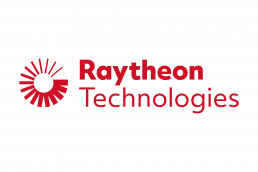
Partner: Raytheon Technologies Research Centre
Country: Ireland
WP NO: Leader WP8, contributor in WP2, WP7
Partner Information:
United Technologies Research Center Ireland, Ltd. is an affiliate of United Technologies Research Center, now part of Raytheon Technologies (RTX). It was established in Cork in 2010 to operate as UTC’s European research hub, with a mission to develop advanced technologies – “what’s next” – for all the businesses of UTC, particularly those based in Europe, and to work with other industry, national labs and academic institutions to broaden the scope and impact of new technology developments along the value chain. UTRC’s researchers focus on the big picture, investigating the “what ifs” of cyber-physical security around the aviation and critical infrastructure domain. RTX and UTC Collins Aerospace covers an extensive scope regarding airport cyber-physical security and services, including airport passenger processing system, airport management services, command control and cybersecurity operation centre. Within E-CORRIDOR, UTRC leads the development of data analytics techniques (WP7), and take active roles in developing tools and technologies for a seamless passenger journey and advanced security services in the Airport-Train Pilot (WP2). UTRC-Ireland is going to leverage UTRC capabilities and resources around multiple UTRC sites in Europe, where high quality technical capabilities are developed for risk assessment of critical infra-structure protection.

Partner: Fraunhofer Institute for Secure Information Technology
Country: Germany
WP NO: WP7, WP8, WP2, WP3, WP4, WP5, WP6, WP9
Partner Information:
The Fraunhofer-Gesellschaft, headquartered in Germany, is the world’s leading applied research organization. Founded in 1949, the Fraunhofer-Gesellschaft currently operates 74 institutes and research institutions throughout Germany.
The Fraunhofer Institute for Secure Information Technology SIT is one of the world’s leading research institutions for cyber security and privacy protection. The institute deals with the central security challenges in economy, administration and society and conducts practice-oriented top-level research and innovation development. Numerous prizes and awards prove the high quality of the results and developments.
The institute’s 230 scientists deal with current issues of cyber security and privacy protection and develop new technologies and concrete solutions for real challenges in this field. The Institute supports its partners, for example, in the design of new IT systems, the protection of IT infrastructures and the development of new products and services. At the same time, the Institute provides advice on important IT security issues and is involved in national and international standardization.
The Institute’s headquarters are located in Darmstadt. In addition, the Institute maintains a branch in St. Augustin near Bonn and offices in Berlin and Mittweida. Internationally, the Institute is represented in Israel and Singapore.

Partner: Waterford Institute of Technology WIT
Country: Ireland
WP NO: WP9 (WP Leader), WP3, WP5, WP7 (Task Leaders)
Partner Information:
WIT is the major provider of higher education in the South East region of Ireland and one of the largest Institutes of Technology in Ireland. It hosts the Telecommunications Software & Systems Group (TSSG), an internationally recognised centre of excellence for ICT research and innovation.
TSSG carries out a broad spectrum of industry-informed research in Information and Communications Technologies (ICT), particularly technologies enabling communications and information services. TSSG’s four key prioritised technical research areas include Mobile Platforms and Services, Security Privacy and Identity, Data Analytics and Social computing, Adaptive Networks and Services. TSSG has an active research and development group in the Intelligent transport system (ITS) with specific focused areas of interest in 1) 5G for Automotive Vertical 2) Secure V2X communications, and 3) Mobility as a Service (Multimodal transport platforms and applications). Within the cybersecurity-focused research domain, WIT/TSSG also have demonstrated outstanding accomplishments as the members of different cybersecurity working groups and EU projects.
WIT/TSSG’S expertise across the automotive and cybersecurity verticals and the 20 years’ experience of the organisation in the network management projects and 5G/AI focused research projects at EU level will significantly benefit and contribute to the ultimate success of E-CORRIDOR.

Partner: CLEM’
Country: France
WP NO: Leader of WP3, member of WP8 and WP9
Partner Information:
Clem is a French expert in shared electromobility and smart charging. We are present today in more than 200 cities, operating more than 400 electric vehicles and 600 smart charging stations providing our services to municipalities, companies, and housing projects. With our web platform, mobile apps and our patented IoT technologies, we provide all-in-one solutions that are compatible with all vehicles and charging stations, our solutions are based on the shared use (Carsharing, bike sharing, ride-sharing …) of clean vehicles and charging stations with a vision for Smart Mobility as a pillar for the Smart City of the future.
With a vivid interest for exploring the potential of innovative ideas and for providing them real-world testing opportunities, we take part in various European Research Programmes (Galileo-Enhanced MOTIT, Galileo for Mobility, Grid Power for Sustainability and E-CORRIDOR), Regional Research Programmes and Experimentations such as FLOVESOL, BienVEnu, VULe and demonstrators in Philadelphia and Hangzhou. We have also contributed with our expertise in ELENA’s High-volume ELectric VehicLe PrOcurement project. In sum, Clem stands for an affordable, inclusive, and sustainable electromobility.
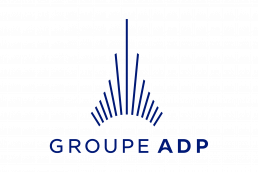
Partner: Groupe ADP
Country: France
WP No: Leader WP2, contributor in WP5, WP8, WP9
Partner Information:
Through its shops and restaurants, GROUPE ADP aims to offer the best shopping and Parisian experience to its many passengers. As a property owner and developer in Ile-de-France, it implements a real estate policy in favour of Cargo and logistics activities, and also promotes the airport city with office buildings and hotels.
At the same time, all subsidiaries, activities and businesses combined, GROUPE ADP is active in 125 airports in 50 countries around the world. It operates directly or indirectly under concession or management contract a network of 24 airports worldwide by the end of 2019 and the alliance it forms with TAV Airports and with GMR Airports allows to rise to the world’s leading airport network.

Partner: Université Paris XII Val De Marne (PEC)
Country: France
WP No: WP2, WP5, WP6 and WP9
Partner Information:
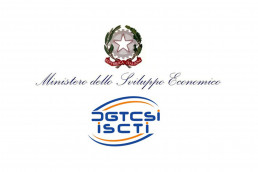
Partner: The Directorate-General for Communications Technologies and Information Security – Higher Institute of Communications and Information Technologies
Country: Italy
WP No: Leader WP4, Contributor in WP5, WP9
Partner Information:
The Directorate-General for Communications Technologies and Information Security – Higher Institute of Communications and Information Technologies carries out the role of:
- Radio equipment market surveillance authority;
- NIS (Network and Information Security) Authority for the energy and digital infrastructure sectors;
- Competent authority for the security of electronic communications networks;
- Supervisory authority on compliance with the provisions within the national cyber security perimeter.
The most relevant entities operating in the Organization are:
- The Information Security Certification Authority (OCSI);
- The Information Security Assessment Center (CEVA);
- The National Evaluation and Certification Center (CVCN) committed to evaluate ICT goods, systems and services to be used on ICT infrastructures that support the provision of essential services or essential functions for the state;
- The Advanced School of Specialization in Telecommunications.
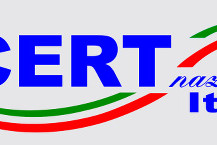
Partner: Italian National CERT
Country: Italy
WP No:
Partner Information:
The Italian National CERT operates within the Ministry of Economic Development (MISE) and the High Institute of Communications ISCOM which is the technical scientific body for ICT matters of the Ministry.
The Italian National CERT operates within the Ministry of Economic Development (MISE) and the High Institute of Communications ISCOM which is the technical scientific body for ICT matters of the Ministry.
The Italian National CERT, according to the public-private partnership model, supports
citizens and companies through awareness and prevention measures and by coordinating the response to large-scale cyber-attacks. The main goals of the Italian National CERT are:
- – provide prompt information on potential cyber threats that could damage companies and citizens;
- – improve the awareness and the promotion of a stronger security culture;
- – cooperate with national and international institutions and other actors, public and private, involved in cyber
security, promoting the cooperation among them;
- – ease the response to large-scale security information incidents;
- – support the process of cyber crisis management.

Partner: SNCF Réseau
Country: France
WP No:
Partner Information:
SNCF Réseau is one of the three public industrial and commercial establishments (EPICs) that belongs to the national railway companies group SNCF, along with SNCF Mobilités and SNCF. SNCF Réseau was created on 1 January 2015, following the merger of the following entities: Réseau ferré de France (RFF), SNCF Infra et Direction de la circulation ferroviaire (DCF).
SNCF Réseau is the owner and the main manager of the French national rail network. The company is responsible for the maintenance and upkeep of the rail network, the construction of new railway lines and manages the movement of all trains on the national rail network. In 2015, SNCF Réseau employs more than 53 000 people, or one-third of SNCF’s workforce.
SNCF Réseau is organised into five departments: traffic management, engineering and projects management, maintenance and works management, network access management and the Île-de-France network management.The SNCF Gares & Connexions branch, which is part of SNCF Mobilités, will be attached to SNCF Réseau from January 2020. SNCF Réseau’s corporate customers are: SNCF Mobilités and its subsidiaries, Eurostar, Lyria, Thalys, VFLI and also CFR, CFL Cargo, Colas Rail, Comsa, ETF, ETMF, Euro Cargo Rail, Europorte, Ferrotract, Ferovergne, Normandie Rail Services, OSR France, RDT 13, Regiorail, Renfe, Sécurail, SNCB Logistics, Thello, Trenitalia, Travaux du Sud-Ouest, Meccoli. These companies operate operate trains on the SNCF Réseau’s national rail network. SNCF Réseau, as the backbone of the french rail system, is at the heart of the SNCF Group’s target through this project to give everyone the freedom to move easily while preserving the planet. To this end SNCF Réseau launched in 2018 very big ambitious project called “Nouvel’R”. This project is defining SNCF Réseau’s strategic orientations to prepare the network of the future, by running more trains thanks to innovative operating systems that combine digital technologies and new operating modes.
The project targets a better operating system of the rail network, improving the quality of service and security, system reliability and operational robustness everywhere, particularly at major railway junctions, enabling the development of traffic for SNCF customers and attract new ones, improve economic performance so that rail, by its nature environmentally friendly, gains market share on other modes of transport.

